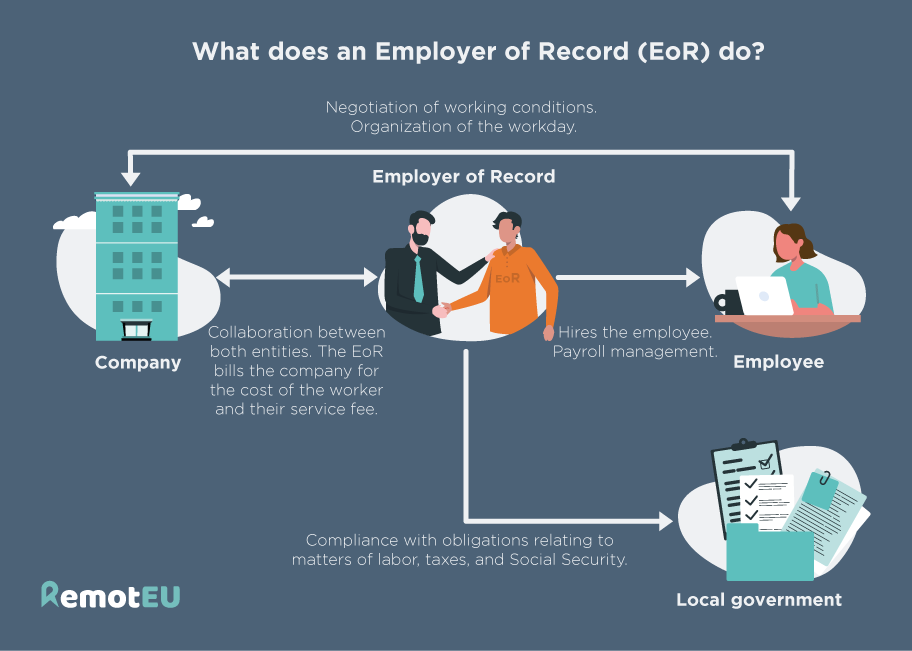When you consider working remotely from another country, both the company and the remote worker must comply with the regulations of that country in matters relating to labor, taxes, and social security. These require the company to have a headquarters in the destination country and take on the economic costs and processes of the transfer. To avoid this, the Employer of Record exists, an intermediary company that acts as the legal employer in the destination country of the remote worker.
What is an Employer of Record (EoR)?
We can define Employer of Record as the worker’s legal employer. It is a solution that allows a company to have their employees posted in another country and fulfill all their labor, tax, and Social Security obligations.
An Employer of Record is a business that has headquarters in the country in which the employee will be working, which enables them to hire the worker directly in this country according to local regulations. From then on, they are considered the legal employer, because they are responsible for the legal facets of the job. All decisions relating to work, tasks, organization, equipment, etc. are agreed upon between the worker and their original employer.

Before the growth of remote work, this formula was most used by companies who wished to hire offshore employees. The companies have the option of hiring professional who are based in other countries, increasing the pool of candidates for a job exponentially, while simultaneously allowing their workers to keep their established setup in a remote manner. In the same way, this avoids having to create new headquarters in other countries and encourages the opening of new channels of negotiation thanks to the workers in those countries.
How does the Employer of Record work?
The way an Employer of Record works is very simple. We will explain it using an example:
The robotics company Portrait has 50 employees in France. One of their employees, Maria, has presented a proposal to the company to work remotely from Madrid. The company, after looking over her proposal, has accepted it and Maria, starting January 1st of the upcoming year, will work remotely from Spain for an indefinite period.
The company is analyzing how to carry out the transfer, partly by looking at what regulations exist and their associated costs. The first one that caught their attention was that they would need a headquarters in Spain, which would be very expensive for them. After ruling out this option, the second one they considered was the possibility of collaborating with an Employer of Record that they had discovered in Spain.
The Employer of Record would allow them to retain Maria as an employee while still fulfilling their obligations in Spain, without having to create a headquarters. The Employer of Record would hire Maria and be in charge of paying her salary and of declaring this in front of the Spanish authorities.
The conditions of her contract (salary, accompaniments, schedule, social benefits, etc.) would be agreed upon between Maria and Portrait.
On her part, Maria would not have to have any relationship with her Employer of Record beyond receiving her salary. She would continue working for Portrait as she had before, planning her work directly with them.
Regarding the Employer of Record, they would be in charge of Maria’s Spanish Social Security contributions, as well as the negotiation of any issue relating to time off from work or other similar issues. In order to carry out this work, the Employer of Record would charge Portrait a fee for its management services.